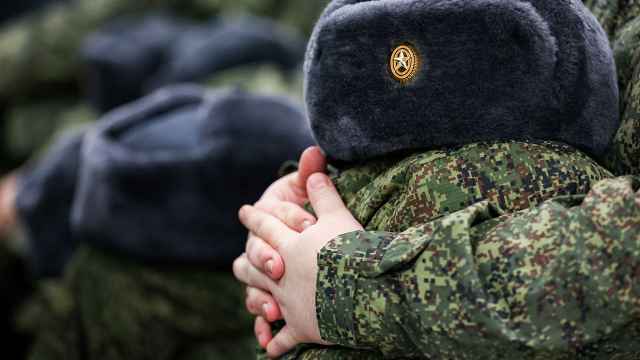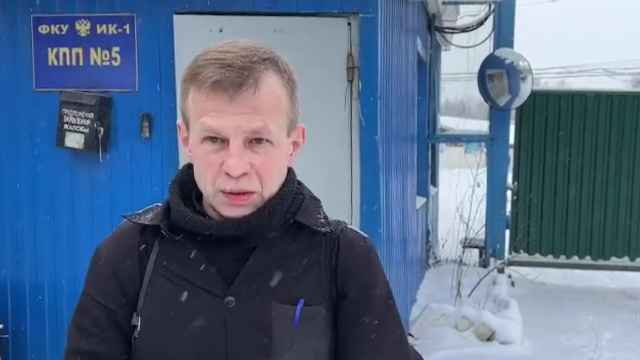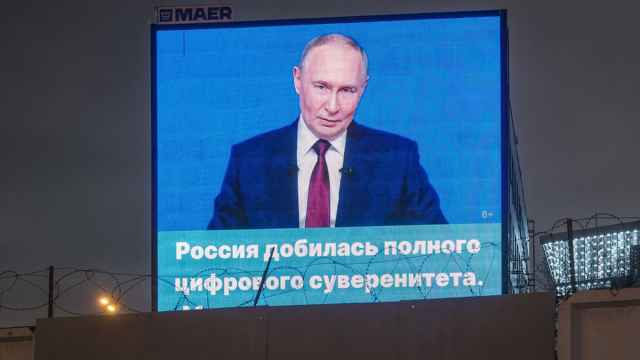WARSAW — The 260 vote observers that the Organization for Security and Cooperation in Europe wants to send for State Duma elections is double what is needed, Central Elections Commission chief Vladimir Churov said Friday.
Moscow's relations with the OSCE's vote monitoring arm, the Office of Democratic Institutions and Human Rights, or ODIHR, have been fraught since the body scrapped plans to send observers to the 2007 Duma elections, citing obstructions by authorities.
The body said last month that it wanted to send a 260-member staff to monitor the Dec. 4 elections.
"Next week we will be sending invitations to international observers, and we will send them to all the structures," Churov said on the sidelines of a seminar in Warsaw.
Those included parliamentary representatives of the OSCE, the Commonwealth of Independent States and the Council of Europe, as well as officials from the Shanghai Cooperation Organization, which brings together China, Kazakhstan, Kyrgyzstan, Russia, Tajikistan and Uzbekistan, Churov said.
"From my own practical experience, for a detailed observation in any country, 100 short-term observers and approximately 20 to 30 long-term observers from an organization is enough," he said, clearly referring to the OSCE.
Churov met ODIHR head Janez Lenarcic in Warsaw on Friday, but the election watchdog said after the meeting that it did not yield an agreement.
"We hope the total number of international observers will approximately be 500 to 600 from all these institutions," Churov said.
Asked whether Russia's invitation to ODIHR would have any restrictions, Churov said: "We will try to be open on this, but, from the other side, we also want to see some positive steps. It is very difficult to sum opinions of so many observers and analyze them. Today, with the development of mass media and other sources of information like the Internet, you don't need to put observers at each voting point."
Churov complained that the organization was not treating all its participating countries equally because it sent only 15 observers to monitor a vote in Germany, which has a smaller population than Russia.
"We have only one condition — to organize a professional and objective observation. Practice must be approximately equal for all OSCE countries," he said.
A Message from The Moscow Times:
Dear readers,
We are facing unprecedented challenges. Russia's Prosecutor General's Office has designated The Moscow Times as an "undesirable" organization, criminalizing our work and putting our staff at risk of prosecution. This follows our earlier unjust labeling as a "foreign agent."
These actions are direct attempts to silence independent journalism in Russia. The authorities claim our work "discredits the decisions of the Russian leadership." We see things differently: we strive to provide accurate, unbiased reporting on Russia.
We, the journalists of The Moscow Times, refuse to be silenced. But to continue our work, we need your help.
Your support, no matter how small, makes a world of difference. If you can, please support us monthly starting from just $2. It's quick to set up, and every contribution makes a significant impact.
By supporting The Moscow Times, you're defending open, independent journalism in the face of repression. Thank you for standing with us.
Remind me later.





